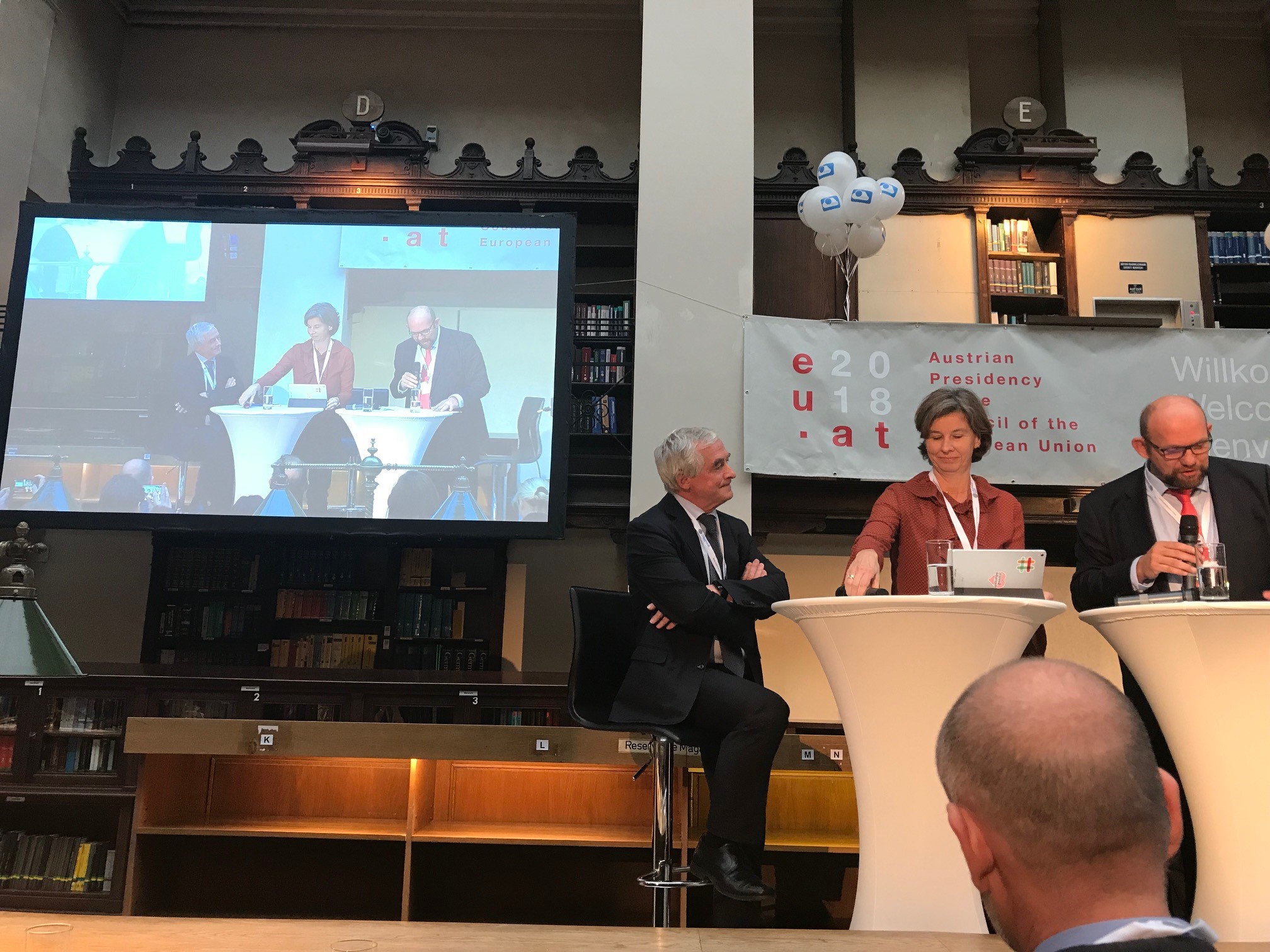Karel Luyben appointed Chairman European Open Science Cloud
On 23 November former Rector Magnificus Karel Luyben was appointed chairman of the Executive Board of EOSC (European Open Science Cloud) in the presence of the Austrian Minister for Education and Science Heinz Fassman and representatives of the European Commission
The European Open Science Cloud (EOSC) was officially launched in Vienna on 23 November. During the event Professor Karel Luyben, representing the European Association of Universities of Technology CESAER, was installed as chairman of the Executive Board of EOSC. Attendees were given a demonstration of the first version of the EOSC portal. By 2020, this should provide all of the estimated 1.7 million European researchers and 70 million scientific and technological professionals with a platform to store, share and reuse their data across borders.

Advocate
The Netherlands is a pioneer in the field of Open Science. During the Dutch EU Presidency in 2016, the intention was announced that all European scientific articles, plus the underlying data and research methods, should be optimally available for analysis and reuse by 2020. Professor Karel Luyben has also been an advocate of Open Science for many years. Since 2016, he has been a member of the Open Science Policy Platform, an EU advisory group of 25 members, and he was appointed National Coordinator by the Dutch Open Science Platform in February 2018.
Science=open
Professor Luyben is proud of his appointment to the EOSC: "The EOSC is an important step towards our ambition: to make all research accessible, findable and searchable. It is an honour to be able to contribute to this". According to him, there is still plenty of work to be done: "Research data is not only about figures, but also about texts, images, sound or algorithms, for example, and that across all scientific disciplines. We have to work hard on international standards in order to be able to share this with each other.” He has a clear ultimate goal in mind: "In ten or twenty years' time we should no longer be talking about 'open science'. Then open is simply the norm.”